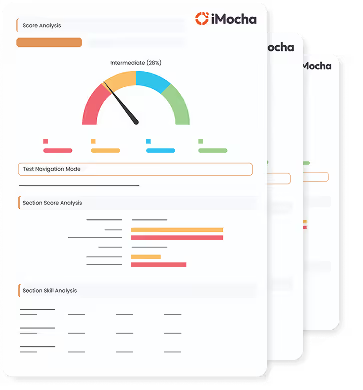


Choose easy, medium, or tricky questions from our skill libraries to assess candidates of different experience levels.
Choose easy, medium, or tricky questions from our skill libraries to assess candidates of different experience levels.

Choose easy, medium, or tricky questions from our skill libraries to assess candidates of different experience levels.

Choose easy, medium, or tricky questions from our skill libraries to assess candidates of different experience levels.
This a comprehensive PDF report, which you can instantly download and share with your hiring team or candidates for seamless collaboration.
Download Sample Report



This skills test allows you to evaluate individuals' abilities faster and conduct skills benchmarking. It can also help talent managers get an objective evaluation, bridge skill gaps, and reduce technical screening time by 80%.





%20(1).webp)
It is the foundation of machine learning's four main ideas: linear algebra, probability theory, calculus, and statistics. It helps design, debug, and apply various algorithms in machine learning and helps choose the right parameters and find insights.
Why Use iMocha's Mathematics for Machine Learning Skills Test?
iMocha's test includes questions on concepts like Bayes' theorem, hypotheses testing, regression analysis, dot product, vector and matrix, and more. Its proctoring capabilities eliminate the scope of cheating. Utilize it to evaluate your employees' and candidates' strengths and weaknesses with a data-driven approach.

This skills test can assess individuals for the following traits:
It also offers detailed results of your candidates and employees, helping you identify their suitability for a role. Moreover, all the questions are created as per EEOC compliance to ensure unbias talent decisions.







.webp)
.webp)
.webp)
.webp)


